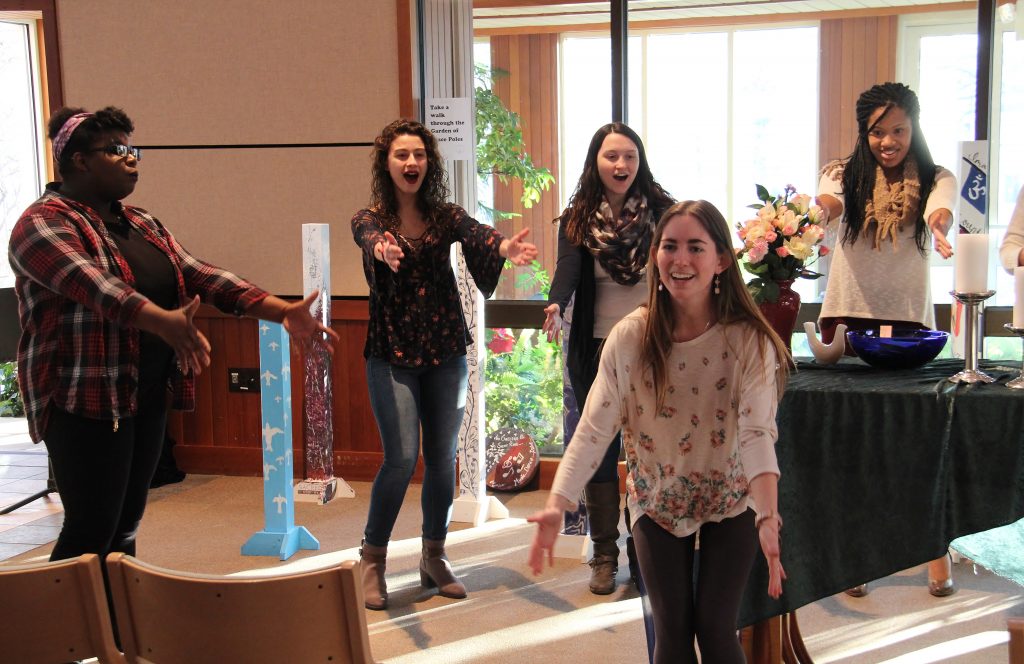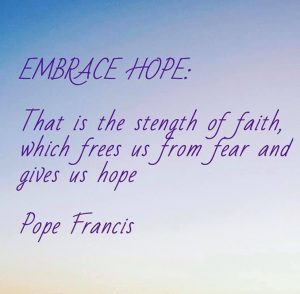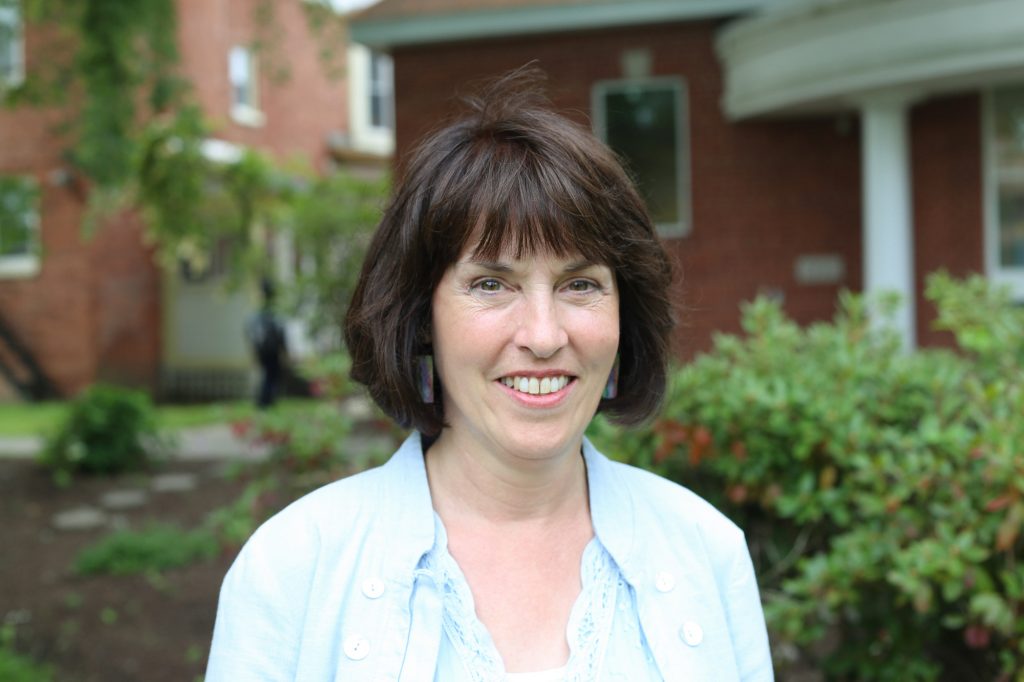The Interfaith Sanctuary is a singular space on the Saint Rose campus that offers the opportunity to engage in community service, worship, ask big questions about society, share music, or simply find some quiet.
As they take part in the events, clubs, yoga classes, meals, and social justice projects, students are encouraged to consider their emotional well-being. Among its functions, the Office of Spiritual Life, housed at the sanctuary, helps students navigate the stressors of college life.
Now, the office, like all others, is redrawing the road map to offer its services and support online. Here, we ask Joan Horgan, director of spiritual life, about the effort.
The sanctuary is such a welcoming setting that students often share personal experiences and challenges. How are you trying to make up for the lack of these important interactions?
I am trying to find that sweet spot about enough contact with the students without flooding them with resources. There are so many things coming my way that look like they would be very useful right now – mindfulness classes, daily art prompts, lectures, conversations, religious services of various types that have moved online, Zoom gatherings for prayer, conversation, meditation, etc.
A major role of mine right now is to connect students to supportive spiritual resources going on all around us. It has been a good opportunity for me to see the creativity and volume of what else is available when we need it.
I am, most importantly, trying to check in with students little by little so they know they are close to our thoughts and they are being missed as well.
Can you give a feel for what students are experiencing at home?
From what I have heard – all different things. For some, the return home has been OK. They might usually be missing home so they are happy-ish to be there. For others, home is taking them closer to the health crisis centers and that is hugely stressful because home is unrecognizable. They are confined to their house or apartment, and the community life of going out and doing things is nonexistent. It also seems to depend a bit on the year the student is in college – seniors seem to be the most heartbroken as they are having to let go of SO much of what they had been looking forward to – athletes finishing their college commitment to their team and their sport, folks who had been involved in running Relay for Life, senior recitals and music performances, senior art shows, and so much more. It is a real experience of grief for them, and I think for all of us as we are also missing this chance to celebrate these students and all they accomplished.
Many are enjoying the return to home cooking and many seem to have siblings very happy to have them nearby.

How are clubs functioning? Is there a schedule?
We are just putting that in place. We had our second meeting of the Happiness Support Project this past week and got the Catholic Student Organization going. We are hoping to do more of this and keep listening for what it is students might want and need.
We are hosting a mindfulness/guided meditation via Zoom on Tuesday night. We will see what folks think about this platform. It was something I was thinking about for years – that I should make this meditation available in an online format – so I am glad to have the chance to experiment with the best way to do that.
What would you say to students who are adjusting to the unplanned departure from campus?
Part of what I would say is “me too!” I would want to validate that they should expect it to be a roller-coaster ride. It is a time that includes real grief for many, and so they should try not to judge it if they are having a tough time. I think it is also a time when the styles with which we handle stress and change get magnified. This change means very different things to each of us. Try not to compare yourself with others. Your experience and your coping are going to be very individual. If you can start with a place of self-compassion and compassion for others, that is going to go a long way.
Two things seemed very important: It is not a new idea to list things you are grateful for each day. In easy times, that is a nice idea. In hard times, it is an essential survival skill.
The other thing is to ask yourself is: “Is what I am doing helping me or harming me right now?” and use that as your guidepost getting through the moments of the day. I thought these two ideas keep it simple and yet offer something to work with when challenges are coming at us fast and furious.
I would also say it is important to remember this is temporary, but it is a long temporary that will likely include some other changes post-crisis. I think it is important to have some reality but also comfort. Life will not always look like it is looking, or feel like it is feeling right now. We are also adaptable creatures, even those of us who don’t love change. We will find a way to move through this new temporary normal and be okay.

Things like this create some possibilities. We can survive them and know we got through it. But I have been inspired these past weeks by people who spoke about the potential for growth and transformation that could be part of these days. One quote I heard (I am sorry to not know the source) was: “Perhaps this is not time in the tomb but time in the womb.” Perhaps we could use this time to open to some changes that would be for our benefit.
I was recently thinking about what happens to our commitments to social justice and to service during times when fear and grief can bring us more into a self-focus or a focus on a smaller group of other people. It dawned on me that the last pandemic we keep hearing about, in 1918, happened two years before women (after a 70-year fight) won the battle in this country for the right to vote (1920). From what I hear about the 1918 pandemic, its aftermath extended for quite a time.
What that implies to me is that even during a time of great fear and great losses and social and community upheaval (very understandably like we are experiencing now); many, many people still had to stay deeply focused and committed to this fight for women’s right to vote. So, this makes me wonder personally and more widely than that, how might we possibly use this time to dig even deeper into the things that matter for us and see if, amidst the trials of this time, we might do more than just survive but allow it to be a time when something very powerful was born or a passion sustained.
To learn about programs and club meetings sponsored by the Office of Spiritual Life, contact Horgan at horganj@strose.edu, visit the webpage, or check the sanctuary’s Facebook and Instagram pages.




Comments posted on this site are held in moderation until approved by a site administrator. Vulgar, profane, obscene, offensive terms or personal attacks will not be tolerated.